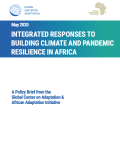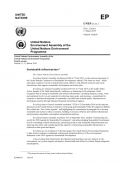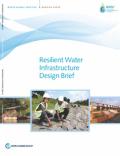
The health of citizens is the first priority for governments responding to the COVID‑19 pandemic, but the need to limit the economic impacts of the crisis is also of great concern. Many governments are considering how to stimulate their economies once the pandemic is brought under control. In these efforts to safeguard economic stability, energy efficiency has a strong role to play in boosting jobs and economic growth while also supporting clean energy transitions around the world.

This series of handbooks showcases key considerations for integrating urban natural assets into city planning and decision-making processes in sub-Saharan Africa.

This policy brief recommends focusing stimulus investment on resilient infrastructure and food security to overcome the COVID-climate crisis. It proposes a set of policy recommendations that bring multiple benefits, a “triple dividend”, to African countries.

This resource details the United Nations Environment Assembly resolution on Sustainable Infrastructure from March 2019.

The purpose of the Resilient Water Infrastructure Design Brief is to guide users on how resilience can be built into the engineering design of their project. With a focus on the three natural hazards most likely to affect water and sanitation infrastructure (droughts, floods, and high winds from storms), the document provides a six-step process to help users address weather and climate related challenges that are most likely to affect an infrastructure component at some point in its operational lifetime.
